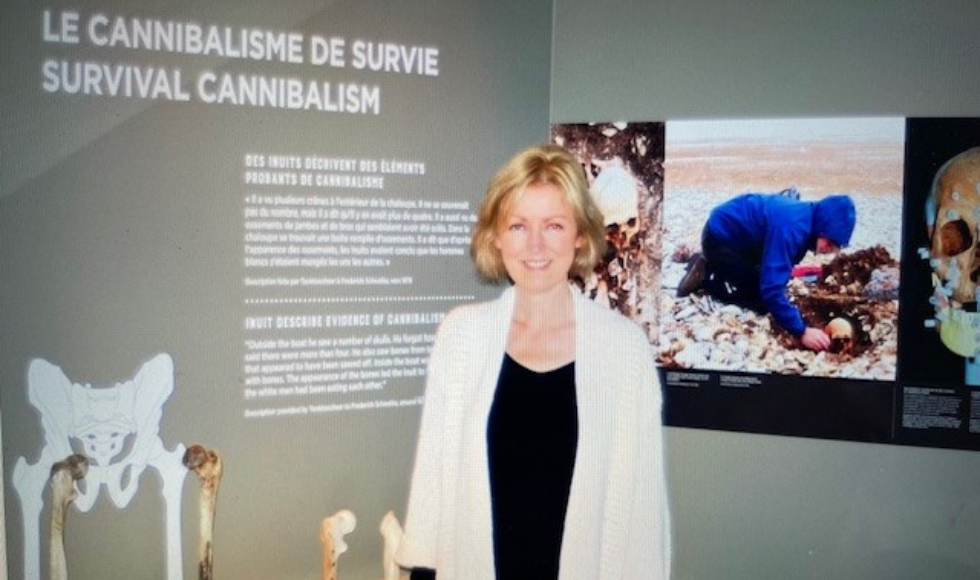Why McMaster donors give: Anne Keenleyside’s story

Anne Keenleyside, BA '85 and PhD ’94 left a gift in her will to establish the Anne Keenleyside Anthropology Academic Grant.
Anne Keenleyside, BA ’85 and PhD ’94, was an esteemed bioarcheologist and valued member of the McMaster alumni community. Keenleyside died on Oct. 27, 2022, but before her passing she left a lasting legacy through a gift in her will.
To inspire the next generation of anthropologists at McMaster, Keenleyside left a gift in her will to establish the Anne Keenleyside Anthropology Academic Grant, providing financial assistance to two students per year who demonstrate financial need and academic ability.
The grant was a testament to Keenleyside’s desire to support education at McMaster and Trent University, where she was a faculty member, said Pat Butler, Keenleyside’s partner.
“Anne thought the world of McMaster and always spoke fondly of her time at the university, and she was passionate about the power of education to change lives,” said Butler.
“Anne was an incredibly generous person, and knew she had the means to support the next generation of scholars.”
An inspiring career
After completing her PhD at McMaster, Keenleyside joined the department of anthropology at Trent, serving as department chair from 2013 to 2017.
As a bioarcheologist, Keenleyside conducted research across the world, from Nunavut to Tunisia. Most notably, Keenleyside researched the fate of the Franklin expedition, an ill-fated search for the northwest passage in 1845.
Among that body of research, Keenleyside co-investigated studies that identified suspected remains of sailors and supported 19th-century Inuit accounts of cannibalism among Franklin’s crew .

It’s impossible to overstate Keenleyside’s contributions to biological anthropology, said Tracy Prowse, an associate professor of Anthropology at McMaster.
“Her research focused on diet, health, and mobility in the past through the study of human skeletal remains,” Prowse said.
“She did research on sites and samples from all over the globe, including the remains of the Franklin Expedition sailors, exploring diet, geographic origins, and possible explanations for their demise on the ill-fated expedition. ”
A lasting legacy
Keenleyside’s contributions to the field of anthropology will continue long into the future thanks to her generous legacy gift.
Andrew Roddick, chair of McMaster’s department of Anthropology, paid tribute to Keenleyside and the mark she made, and will continue to make, on the field.
“Dr. Keenleyside was an important member of our community throughout her student career. I understand that Dr. Keenleyside aspired to be an anthropologist since she was a teenager, and this continues her strong legacy in the discipline,” said Roddick.
“This generous grant will help us to support strong Anthropology students with financial need in their second and third years, critical moments during their time at McMaster. It is especially wonderful to be able to announce this award this year, as the department celebrates our 50th anniversary.”
Like Anne Keenleyside you can create a lasting legacy that makes an impact on future generations. To learn more about legacy and estate planning, contact estate@mcmaster.ca or call 905-525-9140 ext. 24224.
Why McMaster Donors Give: At McMaster University, every single gift, no matter the size, has the potential to make a difference in the lives of our students, the quality of our research and our ability to give back to our community and influence the future. Learn more about what motivates McMaster donors to give.


